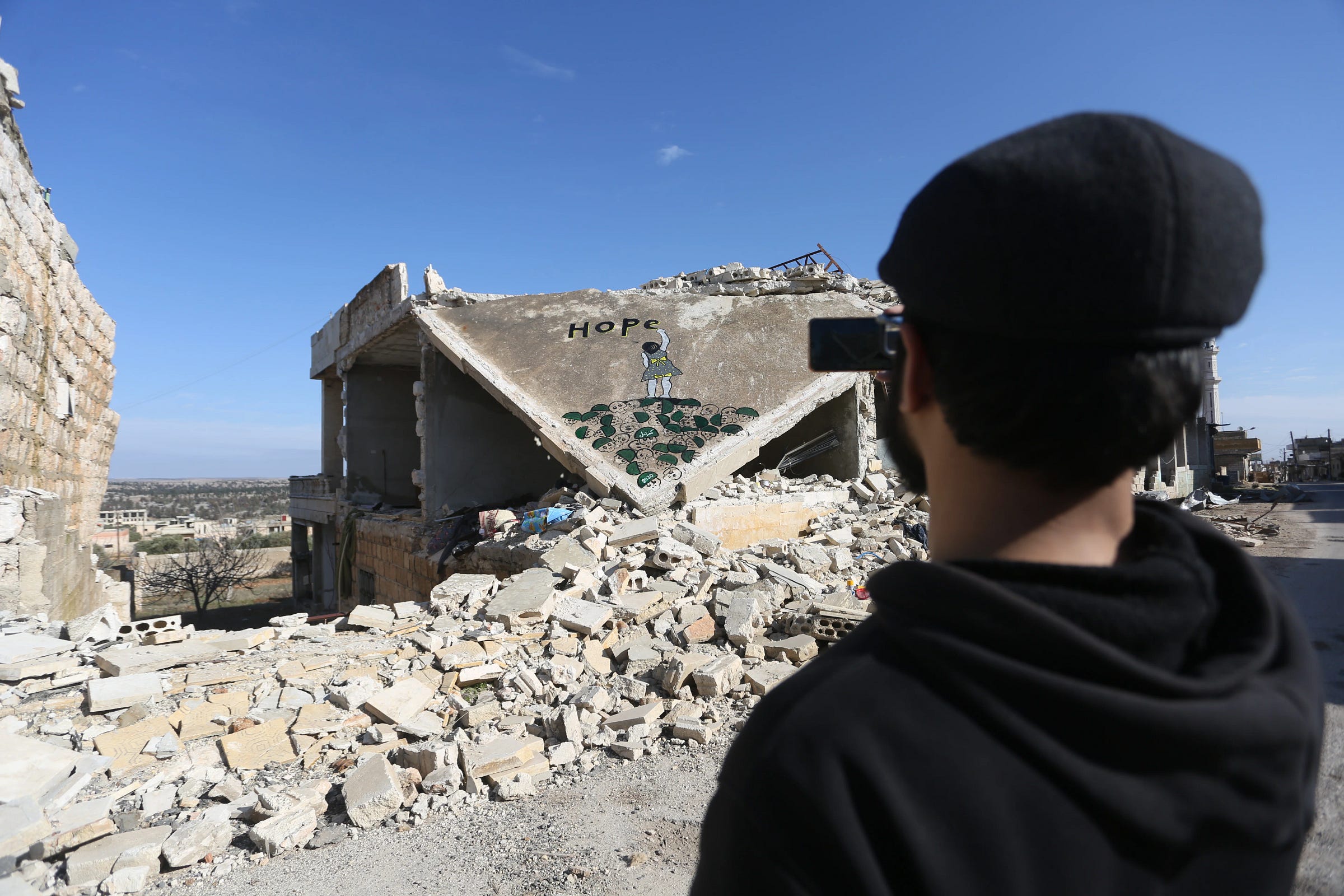russian colonialism 101: a love letter to Syrian people.
and the anti-imperialism lesson they teach us.
Russian Colonialism 101 is the first newsletter to shed light on Russian colonialism. The opening essay is public; the curated reading lists are behind a paywall. This newsletter is part of the Volya Hub network, expanding global awareness of Russian colonialism.

Amid all the overwhelming updates from Syria this week, one caught my eye extra. In one of the videos documenting an abandoned Russian outpost, the Syrian people find ISIS flags and uniforms. “We came to protect you” is one of the key propaganda tropes of Russian colonialism. Through dozens of invasions and colonization campaigns in the last century alone, Moscow constantly reinforced this trope with false flag theatrics of Russians inventing the abuser they came to liberate you from. It seems like Syria has not been an exception.
As more secrets of almost a decade of Russian abuse of Syria emerge in the following months, we will learn more about which colonialism tactics Russia used and whether they were any different from other Russian colonial crimes. Meanwhile, for this edition, I want to share a small admiration letter for the anti-colonial resistance of the Syrian people and the important anti-imperialism lesson it reminded me of.
While messaging with Syrian friends and colleagues in the last several days, I started having regular flashbacks about a very specific moment of my own past.
Several days before our Maidan revolution in Ukraine culminated in Russia-sponsored mass murder and the subsequent collapse of Russia-backed tyranny, I went for a quick trip to Berlin. There, I stopped by a museum of GDR, a Russian-controlled tyranny of East Germany that existed in the second half of the 20th century.
Near the museum’s exit, there was a long timeline of the events starting from the Russian occupation of East Germany and ending with the fall of Berlin’s Wall — almost forty years in total. One thing just made me stop dead in my tracks: you could clearly see that there would be years without any major developments, and then the entire tyranny suddenly collapsed within hours, hundreds of events unfolding like a supernova bang, leaving everyone in shock.
I thought to myself, “Wow, does it mean that our own revolution will succeed suddenly and to everyone’s surprise?” It felt like we might be years away from it. Guess what? Several days later, I was living in a completely new country, and my life was altered forever.
I remember vividly our shell-shocked faces when we got to walk the government quarters in Kyiv, which, just hours ago, seemed like an impenetrable fortress. Or when the people took over the obscenely opulent palace of the Russian-backed tyrant - the place that he was sure we wouldn’t be able to see ever.
Later, when I started studying the patterns of Russian colonialism, the Kremlin’s invasions, and the history of Moscow-backed tyrannies, I often encountered the same story. Whether it was East Germany or Afghanistan in 1989, Estonia in 1920, Lithuania in 1991, or Ukraine in 2014, the collapse of the imperial chokehold always arrived suddenly and as a total shock, even to those who had resisted it their entire lives.
Russian empire is a tyranny, carbon-copying pocket regimes in its own image wherever it goes to meddle or colonize. Any tyranny spends enormous resources on myth-making, presenting itself as eternal, encompassing, and solid as a rock. Because for any empire to be a true success, it has not only constantly expand to occupy more of our homes, but it needs to start living in more of our heads, too. A mind-messing facade of lies overselling its greatness to cut costs on actual policing.
What also always happens is that the same aggrandizing propaganda infects the ruling elites over time. They start believing their own lies that the empire can reach anywhere and will stand forever. They overextend, becoming fragile and collapsing from most random pushback.
That’s why no expert can ever predict when exactly tyrannies and empires would fall. most of my Syrian friends are as shell-shocked today as I was back in 2014 — if anyone told them a week ago that Assad and Russians would run away in a matter of days, they would call you delulu. But they did. Because all tyrannies and empires always fall. This historical pattern is as inevitable as sunrises and sunsets. And maybe we can’t predict when it will happen, but we can always count on the nature of tyranny to run its course.
Putting a timer on the empire’s demise is pointless. But no tyranny withstood the test of time and resistance — as long as we keep pushing back, one of the pushbacks will eventually become fatal.
This week, the Syrian people embodied this truth for the rest of the world to see. Thank you for making history that will inspire generations to come.
Russian colonial empire was beaten in Syria, and it can be beaten in Ukraine, too.
Remember this.
REMINDER: founding subscribers to my Substack and members of the highest tier on my Patreon have access to the Russian Colonialism 101 micro-website — the only live-updating database with the most relevant sources about Russian colonialism.

here is what's in store for you this week:
I introduce a new section, an advice column, where I answer one question from my paid subscribers per edition. This time, Char asked me to tell him more and suggest some reading on indigenous people colonized by Russia in North Asia - apart from those I mention in my guidebook.
A Georgian journalist argues: “While European colonizers instilled the notion that their colonized subjects were “different” from them, Russians often conquered using another device: “sameness.”
Little-known history of depraved war crimes committed by Russian imperial troops in East Asia.
Why does the myth of Russian imperial supremacy live on even among Russians who fled the empire abroad?
How Moscow appropriated the ‘victory over the Nazis’ and made it one of the central imperial myths.
Curious for more? Let's go.



